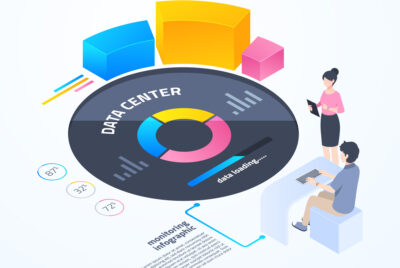Digital marketing is constantly evolving, with new trends and innovations shaping the landscape each year. Staying ahead of these changes is crucial for businesses looking to maintain a competitive edge. Here are the top 10 digital marketing trends to watch in 2024, along with insights into key tools like SEMrush, Ahrefs, Hootsuite, Mailchimp, Google Analytics, and Google Ads.
1. Artificial Intelligence and Machine Learning
AI and machine learning are transforming digital marketing by enabling more personalized and efficient customer interactions. From chatbots to predictive analytics, AI-driven tools help businesses analyze data, predict customer behavior, and automate tasks. Companies are leveraging AI to enhance their marketing strategies, improve customer experiences, and optimize campaigns in real time.
2. Voice Search Optimization
With the increasing popularity of smart speakers and voice-activated assistants, optimizing for voice search is becoming essential. Voice search queries differ from text searches, often being longer and more conversational. Businesses should focus on natural language processing and long-tail keywords to ensure their content ranks well in voice search results.
3. Video Marketing Dominance
Video content continues to dominate the digital landscape. In 2024, short-form videos, live streaming, and interactive video content are expected to gain even more traction. Platforms like TikTok, Instagram Reels, and YouTube Shorts offer businesses opportunities to engage with audiences through creative and engaging video content.
4. The Rise of Social Commerce
Social media platforms are increasingly integrating shopping features, allowing users to purchase products directly from their feeds. This trend, known as social commerce, is transforming how businesses approach social media marketing. Brands can now create seamless shopping experiences on platforms like Instagram, Facebook, and Pinterest, driving sales and enhancing customer convenience.
5. Privacy and Data Security
With growing concerns about data privacy, businesses must prioritize transparent data practices and comply with regulations like GDPR and CCPA. Consumers are becoming more aware of how their data is used, and brands that prioritize data security and privacy will build trust and loyalty with their audiences.
6. The Metaverse and Virtual Reality
The metaverse—a collective virtual shared space—is emerging as a new frontier for digital marketing. Brands are exploring virtual reality (VR) and augmented reality (AR) experiences to engage customers in immersive ways. From virtual showrooms to interactive AR ads, the metaverse offers unique opportunities for creating memorable brand experiences.
7. Content Experience
Content experience focuses on delivering relevant, personalized content to users at every stage of their journey. It’s not just about creating high-quality content but also about how it’s presented and accessed. Interactive content, personalized recommendations, and adaptive content strategies are key components of a successful content experience.
8. Influencer Marketing Evolution
Influencer marketing continues to grow, but the landscape is shifting towards micro and nano influencers. These influencers, with smaller but highly engaged audiences, offer more authentic and relatable endorsements. Businesses are leveraging these influencers for more targeted and cost-effective campaigns.
9. Sustainability and Social Responsibility
Consumers are increasingly looking for brands that prioritize sustainability and social responsibility. Companies that align their marketing efforts with ethical practices and environmental consciousness can attract socially conscious consumers and build stronger brand loyalty.
10. Omnichannel Marketing Integration
An integrated omnichannel approach ensures a seamless customer experience across all touchpoints, whether online or offline. Businesses are using data-driven insights to create cohesive marketing strategies that engage customers consistently across multiple channels, from websites and social media to email and physical stores.
Key Tools in Digital Marketing
SEMrush
SEMrush is an all-in-one digital marketing toolkit that provides tools for SEO, content marketing, competitor research, PPC, and social media marketing. It helps businesses identify organic search opportunities, track keyword rankings, analyze competitors, and optimize PPC campaigns. SEMrush’s comprehensive analytics and reporting features make it a go-to platform for data-driven marketing strategies.
Ahrefs
Ahrefs is a powerful SEO toolset known for its extensive backlink database and site audit capabilities. It offers tools for keyword research, competitive analysis, rank tracking, and content gap analysis. Ahrefs helps businesses improve their search engine visibility by providing actionable insights into their website’s performance and link-building opportunities.
Hootsuite
Hootsuite is a social media management platform that allows businesses to schedule posts, track social media performance, and manage multiple accounts from one dashboard. It provides analytics to measure the effectiveness of social media campaigns and helps businesses engage with their audience in real time. Hootsuite’s social listening features enable brands to monitor conversations and trends relevant to their industry.
Mailchimp
Mailchimp is an email marketing service that offers tools for creating, sending, and analyzing email campaigns. It provides customizable templates, audience segmentation, and automation features to help businesses deliver personalized email experiences. Mailchimp’s analytics and reporting tools enable marketers to track open rates, click-through rates, and other key metrics to optimize their email marketing efforts.
Google Analytics
Google Analytics is a web analytics service that tracks and reports website traffic. It provides detailed insights into user behavior, traffic sources, and conversion rates. Businesses can use Google Analytics to measure the performance of their marketing campaigns, understand customer interactions, and make data-driven decisions to improve their online presence.
Google Ads
Google Ads is a PPC advertising platform that allows businesses to create and manage ads on Google’s search engine and display network. It offers targeting options such as keywords, demographics, and geographic locations to reach the right audience. Google Ads provides tools for creating ad campaigns, setting budgets, and tracking performance, helping businesses maximize their return on investment (ROI).
Conclusion
Staying ahead of digital marketing trends is crucial for businesses aiming to thrive in an increasingly competitive landscape. By embracing innovations like AI, voice search optimization, and the metaverse, and leveraging powerful tools like SEMrush, Ahrefs, Hootsuite, Mailchimp, Google Analytics, and Google Ads, businesses can enhance their marketing strategies and achieve their goals in 2024.



